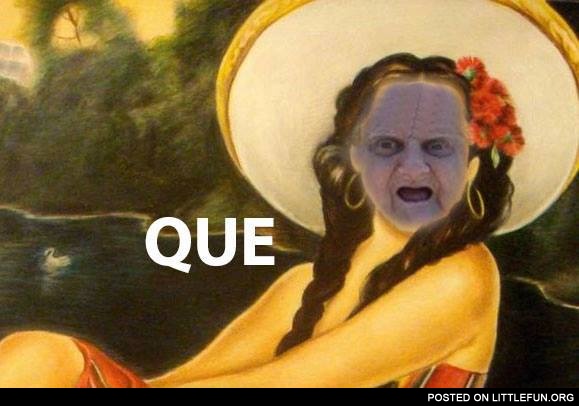Normally artistic vision is brought up as a result of what I like to call "reactive game design".
For example, Zarya is a very typical example of reactive game design. It was reaction to potential customers who wanted a more diverse cast of characters (neutral/positive). The ME3 ending change was another one (negative).
The problem is when people complain about this is that game developers do it all the fucking time. Play testers, surveys, content and balance patches, and publishers.
I'm not saying that it's fine to do in every circumstance. A game developer should not be bowing to every whim of people to want them to make changes to the game. I still believe the developer should be following their original vision for the most part.
These things should be judged on a case by case basis. Zarya for example has compromised nothing, on its own. Honestly in a game like Overwatch they could take it further by making character design contests (similar to the boss character contests in the Mega Man series). As long as Acti-Blizz focuses on creating characters that they want primarily, it's all good to me. They just need to make sure to draw the line somewhere. I might as well also add that it wasn't like Blizzard was under any actual pressure to make this Zarya. Say what you want, but no way would a AAA dev 'crack' under tweets from strangers on the internet or opinions from journalists. Good developers don't crack under fucking publishers, let alone random strangers, so it's very likely that they really wanted to make Zarya anyway.
Reactive game design isn't necessarily bad in its own right, but can be easily misused and if left unchecked it can ruin your game. I said Mass Effect 3 was a negative example but not exactly a game ruiner. Ultima VIII and IX were extremely rushed games because Garriott put up with EA's ridiculous deadlines for those games.
As for The Order, their game looks very good (aside from the retarded letterboxing) but despite not playing the game, the shooting sections looked pretty dull mechanics wise, which ironically damages the game on an aesthetic level too. They followed their artistic vision to a T, and executed it perfectly. The big downside was it was a deeply flawed artistic vision, one that held it back from becoming a truly fantastic game. Even if they decided to make 51% of their game based on feedback/criticism they received it would have probably made their game even worse.
TL R - Reactive game design is fine, but only in heavy moderation. Too much of it can comprimise your artistic vision. Either way, it's not a simple black/white issue.
R - Reactive game design is fine, but only in heavy moderation. Too much of it can comprimise your artistic vision. Either way, it's not a simple black/white issue.
For example, Zarya is a very typical example of reactive game design. It was reaction to potential customers who wanted a more diverse cast of characters (neutral/positive). The ME3 ending change was another one (negative).
The problem is when people complain about this is that game developers do it all the fucking time. Play testers, surveys, content and balance patches, and publishers.
I'm not saying that it's fine to do in every circumstance. A game developer should not be bowing to every whim of people to want them to make changes to the game. I still believe the developer should be following their original vision for the most part.
These things should be judged on a case by case basis. Zarya for example has compromised nothing, on its own. Honestly in a game like Overwatch they could take it further by making character design contests (similar to the boss character contests in the Mega Man series). As long as Acti-Blizz focuses on creating characters that they want primarily, it's all good to me. They just need to make sure to draw the line somewhere. I might as well also add that it wasn't like Blizzard was under any actual pressure to make this Zarya. Say what you want, but no way would a AAA dev 'crack' under tweets from strangers on the internet or opinions from journalists. Good developers don't crack under fucking publishers, let alone random strangers, so it's very likely that they really wanted to make Zarya anyway.
Reactive game design isn't necessarily bad in its own right, but can be easily misused and if left unchecked it can ruin your game. I said Mass Effect 3 was a negative example but not exactly a game ruiner. Ultima VIII and IX were extremely rushed games because Garriott put up with EA's ridiculous deadlines for those games.
As for The Order, their game looks very good (aside from the retarded letterboxing) but despite not playing the game, the shooting sections looked pretty dull mechanics wise, which ironically damages the game on an aesthetic level too. They followed their artistic vision to a T, and executed it perfectly. The big downside was it was a deeply flawed artistic vision, one that held it back from becoming a truly fantastic game. Even if they decided to make 51% of their game based on feedback/criticism they received it would have probably made their game even worse.
TL

